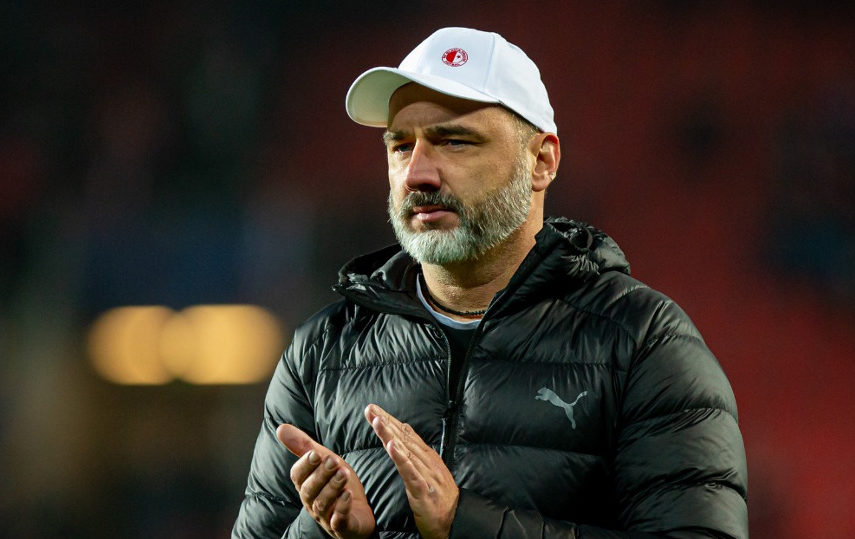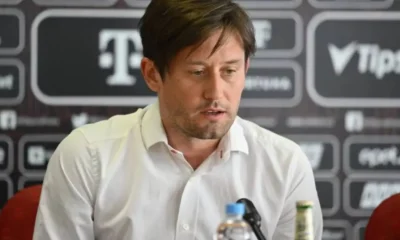Football
Is it necessary for a coach to be a good football player? It doesn’t really matter much
Why doesn’t it matter how good the coach was as a player? Jindřich Trpišovský and others could tell the story. Giving a chance to former legends often doesn’t pay off for clubs.

Why doesn’t it matter how good the coach was as a player? Jindřich Trpišovský and others could tell the story. Giving a chance to former legends often doesn’t pay off for clubs.
We often see in football when former players and club legends are given chances in coaching positions as opposed to really promising coaches who have a track record in that position. Is that right?
Yes, I’m sure we all know the stories of great former players who eventually became great coaches. However, not everyone is Pep Guardiola or Zinedine Zidane.
Even bad players can be good coaches
A notable pioneer among coaches who had zero or minimal experience as players was AC Milan coach Arrigo Sacchi back in the late 1980s and early 1990s. Under his leadership, the Milan club managed to win the European Champions Cup (then the equivalent of the current Champions League) twice in a row.
” I never realised that to become a jockey, you must first become a horse.”
He himself was never even a professional player, before his coaching career he made a living as a shoe salesman.
José Mourinho and Jindřich Trpišovský, for example, also belong to this category of trainers. Neither of them was much of a player, but both of them rose to the top by successive steps from the lowest rungs.
One of the best coaching schools in recent times is definitely the German one. German coaches are often not just former players who aspire to get a coaching license. Many former amateur or semi-professional players are also looking for it. Current Chelsea coach Thomas Tuchel or Bayern Munich coach Julian Nagelsmann may be among such graduates.
Club legends as coaches
In the summer of 2019, the Chelsea management decided to engage their legend Frank Lampard. At the time, Lampard had his first year as far as coaching was concerned. He took the second division Derby County all the way to the play-offs, but in that game he fell short to Aston Villa.
It begs the question whether Chelsea (it should be added that at the time they were hit with a two-year transfer ban) would have engaged a coach on the basis of such results had he not been a club legend. Very probably not.
This behaviour is quite common in contemporary football. Club management often think that their former player will improve the team’s results considerably because he knows the local environment best. This is far from always the case.
In 2018, former great striker Thierry Henry was given the chance to become the head coach of Monaco, where he once worked. Henry accepted this challenge, but totally failed at it. Monaco got Henry to the penultimate position in the French Ligue 1. Eventually, the management fired him after less than six months.
The club’s management
Of course, this trend can be applied to the club’s management as well. At the end of 2018, Sparta Prague hired Tomas Rosicky as sporting director. Rosický certainly had a great career behind him, which could have been the envy of everyone in Sparta’s management.
However, he had practically zero experience in football club management (he worked for a year as an advisor to Zdeněk Ščasný, the then sports director). Yes, he had certainly gained some experience from his playing stints at Borussia Dortmund and Arsenal, but still not enough to be entrusted with one of the most important roles in the club’s management.
So this is once again a situation where a club legend has been preferred instead of Sparta looking for someone with more experience and qualities for the position.
Generally in the Czech Republic, but also in other countries, people with little experience, often former players, are often put in charge of the management of football clubs. This in turn gives a chance to more systemic teams with a well thought out concept, such as Red Bull Salzburg.
So what does it matter?
First of all, the quality of the coach and his experience. Yes, this is not always the rule. The current example of Xavi taking up the coaching position at Barcelona quite belies this. But in general, giving club legends a chance without their previous experience in the job is very risky.
Therefore, clubs should look mainly at coaching experience when choosing a coach and not favour former quality players.
Source: AC Sparta Prague








